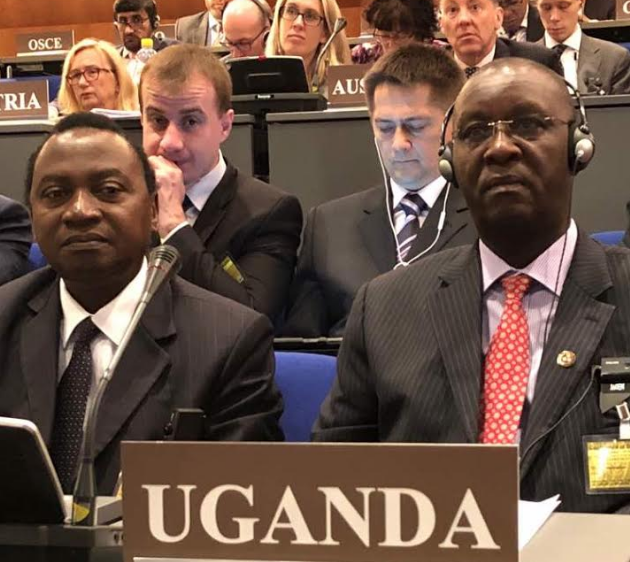The Uganda Government has called for increased cooperation at the international level that will help developing countries build none prohibited chemical capacity and industry as one of the avenues of catapulting economic development.
Delivering a keynote address at the ongoing twenty second session of the conference of the States Parties of the Chemical Weapons Convention at The Hague, Netherlands on Monday, the Gender Ministry Permanent Secretary Pius Bigirimana noted that there was need for exchange of scientific and technical information for the mutual benefit of signatories.
Bigirimana, who is leading the Ugandan delegation at the convention, is the Head of Uganda National Authority for the Implementation of the Chemical Weapons Convention.
Bigirimana cited Article XI of the Convention which speaks about achieving Economic and Technological Development through substantial assistance to non-possessor States in order to enable them develop chemical capacity and Industry.
The Article provides that “the Convention shall be implemented in a manner which avoids hampering the economic or technological development of States Parties, and international cooperation in the field of chemical activities for purposes not prohibited under this Convention including the international exchange of scientific and technical information and chemicals and equipment for the production, processing or use of chemicals for purposes not prohibited under this Convention.”
“My delegation, would like to see the full implementation of Article eleven (XI) through substantial assistance to non-possessor States. This will facilitate the developing countries to view the Convention as a relevant tool and as a catalyst for economic development through the unlimited use of chemicals for peaceful purposes not prohibited in the Convention.” Bigirimana noted.

The Article further annihilates any impediments on trade and the development and promotion of scientific and technological knowledge in the field of chemistry for industrial, agricultural, research, medical, pharmaceutical or other peaceful purposes.
“In this respect, the Uganda delegation welcomes the development of concrete measures to ensure the promotion of international cooperation in the field of chemical activities through the exchange of scientific and technical information.” Bigirimana said.
He revealed that Uganda had successfully hosted members from State Parties in the East African region for the Second Operational Training in Emergency Response to Chemical Incident or attack.
The training took place in Jinjafrom 1 – 8 November 2017.
The objective of the training was to equip the participants with knowledge and skills in handling emergencies involving toxic chemicals. It was facilitated by experts from the Czech Republic, the United Kingdom and the Organisation for the Prohibition of Chemical Weapons (OPCW).
“This training is in line with capacity building for the region to provide future trainings in the region using the pool of experts trained under this programme.” Bigirimana said.
He pledged Government of Uganda’s continued support to the programme and other OPCW initiatives.











